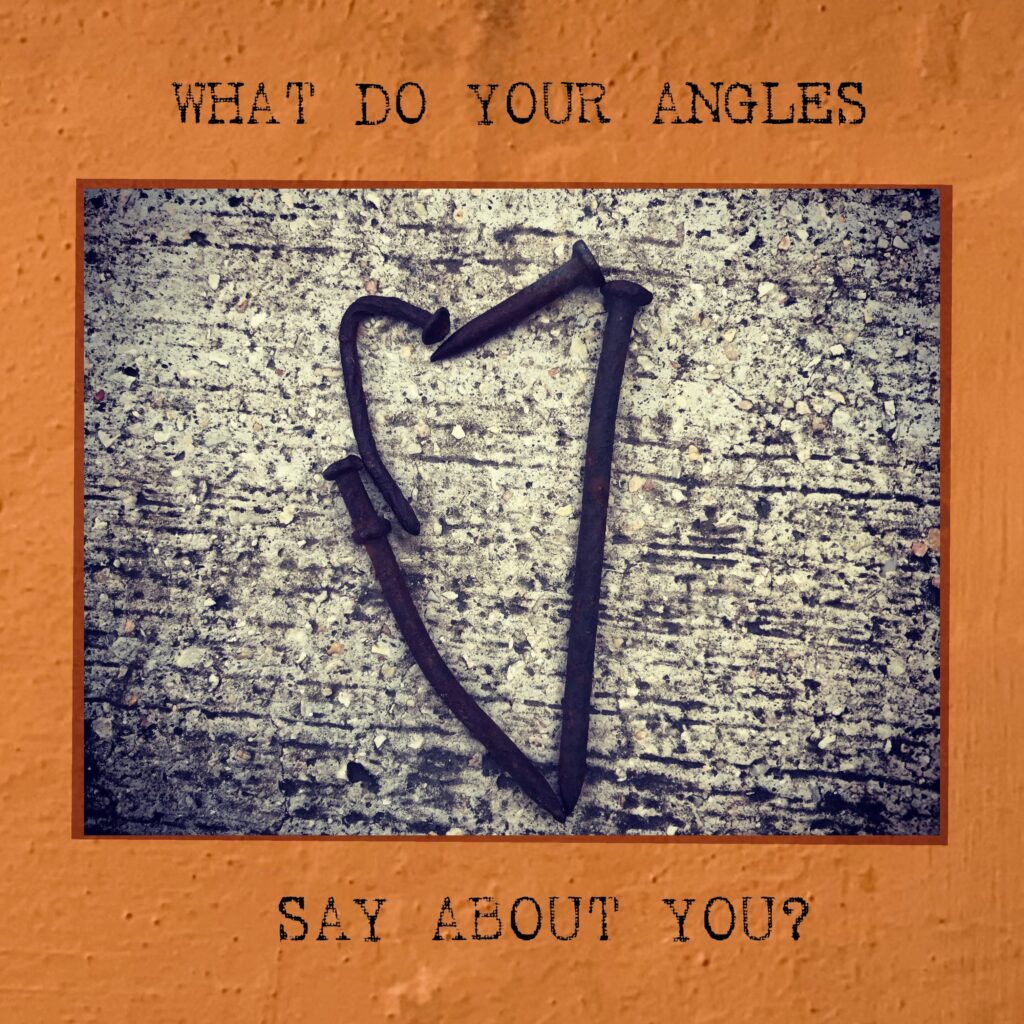I understand many things. Angles aren’t among them. When I say angles in the current context, I’m not referring to geometry where angles make sense and can be definitively measured and used to calculate finite outcomes. I’m talking about the angles some people seem intent upon identifying and leveraging to their personal benefit. I preface them with a Latin root and call them Malanglers. (Yes, I’ve made up yet another word.)

We all likely know one. They’re the person who rarely just does something. Whether in a board meeting or at a garage sale, they don’t just see things. They scan things. They look for ways to shift the balance of things. Then, they act to ensure things transpire to their personal benefit. Unfortunately, their personal benefit rarely aligns with the collective benefit of others.
Being able to recognize Malangler behavior isn’t hard, it only requires temporary suspension of good ethics and our belief in right and wrong. This is because an ethically operating brain isn’t able to understand the Malangler’s actions. They don’t make sense because knowingly doing wrong doesn’t make sense. Trying to make it make sense will only hurt our brains. In case you’re blessedly unfamiliar with the behavior, this is what it looks like in 1,000 piece puzzle completion scenario.
You’re putting together a puzzle with friends. The obvious goal is to take 1,000 unintelligible pieces and combine them into a single, intelligible piece. An ethically grounded approach is to work together to find the quickest and most effective way to complete the puzzle. After all, that’s from where the enjoyment derives. You then cooperatively look for the most easily discernible characteristics of the image on the box (read: assess and analyze). A sensical approach is to separate pieces by dominant colors and divide efforts into color dominant areas (read: collaboration and cooperation). Each person then individually does their portion, but their efforts contribute to the group’s collective efforts. Along the way, they enjoy the time spent communicating with each other about both the puzzle and life in general. When the puzzle is complete, the group is successful, and each person has a personal sense of their contribution (read: team bonding and building).
This makes sense, right? If you’re a Malangler, the answer is no. Yes, the puzzle was completed. Yes, the group was successful. The “no” comes from the fact the Malangler ended the endeavor with an equal standing among their teammates. There may be collective success, but there’s no personal success because they didn’t come out looking bigger, stronger, or faster than others. Conversely, the Malangler doesn’t think they failed either. The others just failed to allow the Malangler to angle the situation correctly. They’ll just use their analysis of the process to identify how to better angle the next one. When the next puzzle arrives, they may take some pieces off of the table and put them in their pocket. They may discourage a fellow puzzler from pursuing what they see as a good puzzle solving approach or try to distract them with witty banter. If things still don’t shape up to their advantage, they may resort to feeding what will become known as “the last puzzle piece” to the dog.
If this scenario sounds ridiculous, it’s because it is. That is, it’s ridiculous to the ethically minded person. It’s ridiculous to a decent human being. Sadly, it makes perfect sense to the Malangler. If this sounds a lot like a characterization of a Narcissist, it’s because Malangling is undoubtedly a narcissistic trait. That’s why we have to be careful. A generally amiable and easy going person often does well at Malangling without others noticing. For this reason, decent people (wherein I’d prefer to group myself) have to keep their inner ethical eye open. We have to recognize the signs and not allow Malanglers to misuse our ethically oriented efforts. At the same time, we have to be careful not to try and tip the benefit scale away from the Malangler and toward us, lest we too become a Malangler. Our goal is to keep the scale level and with equal benefit to all. In the end, we should leave the angles to geometry and the angling to the fishing aficionados. Life is much more pleasant that way. That is all.